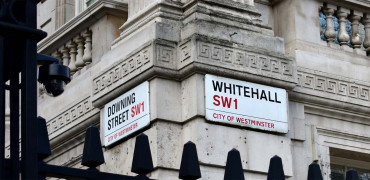The news that global legal experts have now settled on a definition for ‘Ecocide’ is both historic and encouraging in the fight to ensure big business takes proper care of the environment.
However, this also comes with the caveat that the 165-word definition could take years to pass the International Criminal Court – when we have a little less than a decade to change the way we tackle the climate crisis.
And make no mistake, the climate challenge is not just about reducing carbon emissions – essential though that is. It is always about protecting the planet and that means biodiversity and nature in general – so stopping environmental destruction, whether accidental or deliberate is also vital.
The draft law on Ecocide is intended specifically to prosecute offences against the environment.
It defines ecocide as “unlawful or wanton acts committed with knowledge that there is a substantial likelihood of severe and widespread or long-term damage to the environment being caused by those acts”.
This definition would signal that mass environmental destruction is one of the most morally reprehensible crimes in the world
Close to home
Whilst we may think of ‘ecocide’ as something affecting the rain forest or some other far, flung parts of the world that we only ever see on the news, here in the UK, Southern Water has just been fined a record £90m for deliberately dumping raw sewage into the sea right across the south coast of England.
This highlights exactly why we need stronger laws that target the individuals in charge, rather than just the profit and loss columns in the annual report.
According to reports such as this one on the BBC, the Environment Agency's largest ever criminal investigation began after shellfish were found to be contaminated with E. coli – not only harming life in the sea but also potentially harming anyone who might consume this shellfish.
In summing up the verdict, Mr Justice Johnson said Southern Water "showed a shocking and wholesale disregard for the environment, for the precious and delicate ecosystems along the north Kent and Solent coastlines, to human health and to the fisheries and other legitimate businesses that depend on the vitality of the coastal waters".
Southern Water admitted almost 7,000 illegal spills from sites in Kent, West Sussex and Hampshire in the five years from 2010 and 2015.
Not just a one-off
Unfortunately, this does not seem to be a one-off, as ITV discovered when it investigated the dumping of sewage into rare chalk streams in Berkshire and elsewhere.
Apparently, water companies are licensed to put sewage into rivers if the sewage treatment works reach capacity.
When you consider that the other option is letting raw sewage back up into our homes, this does seem ‘reasonable’, but perhaps we need to question our whole approach to this hidden topic?
However, the licenses allow the water companies to only do this in emergencies. Yet according to the ITV report local campaigners are alleging that Thames Water has run sewage into the river on 96 separate occasions so far this year.
The report also states that the national picture is similar, with Environment Agency data showing almost 300,000 separate discharges of effluent into English rivers and seas during 2019.
Devastating examples
Whilst dumping sewage into our rivers is awful and dangerous, could it really be considered ecocide? Surely that befits something more grand scale and dramatic such as the more headline grabbing situation with palm oil?
In case you remain unaware, in Indonesia, 6 million hectares have already been dedicated to palm oil production. These plantations add to the climate threat by pumping an estimated 1.8 billion tonnes of greenhouse gas emissions each year.
In addition, this conversion of tropical forests to palm oil plantations threatens biodiversity and the life of both plant and animal species, including the most famous - the Orangutan.
We’ve written about this issue before here on the Hub as this piece from my colleague Ellina Webb explains.
There are numerous examples of what could be deemed ecocide to be found, with perhaps the most concise list here
It includes some terrible and catastrophic examples such as the Alberta Tar Sands – described as the most damaging project on the planet.
Then there is the continued use of the pesticide clothianidin which is leading to a global colony collapse for bees, which in turn affects pollination of so many of the plants that life itself depends on.
There are unfortunately many other examples, which put human progress above ecological survival, such as dams which obliterate precious rainforest and oil pollution in the Niger Delta. Each one a disaster in its own right. Each one another nail in the coffin of the environment.
So, if or rather when, we can get this definition of ecocide adopted as the fifth crime before the international court, it would signal that mass environmental destruction is one of the most morally reprehensible crimes in the world, ranking it alongside genocide as an international crime.
Russell Jones is content and communications manager


